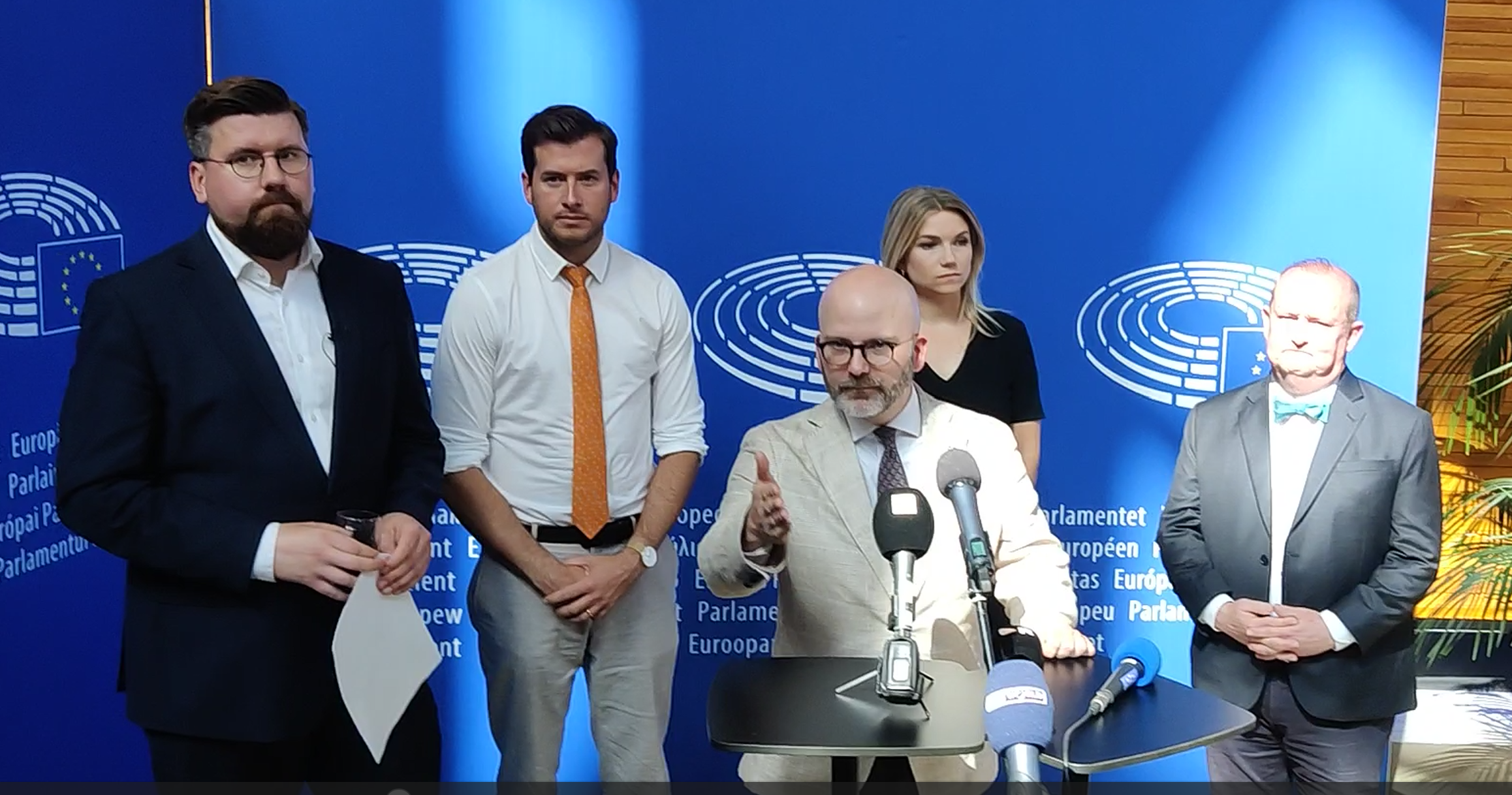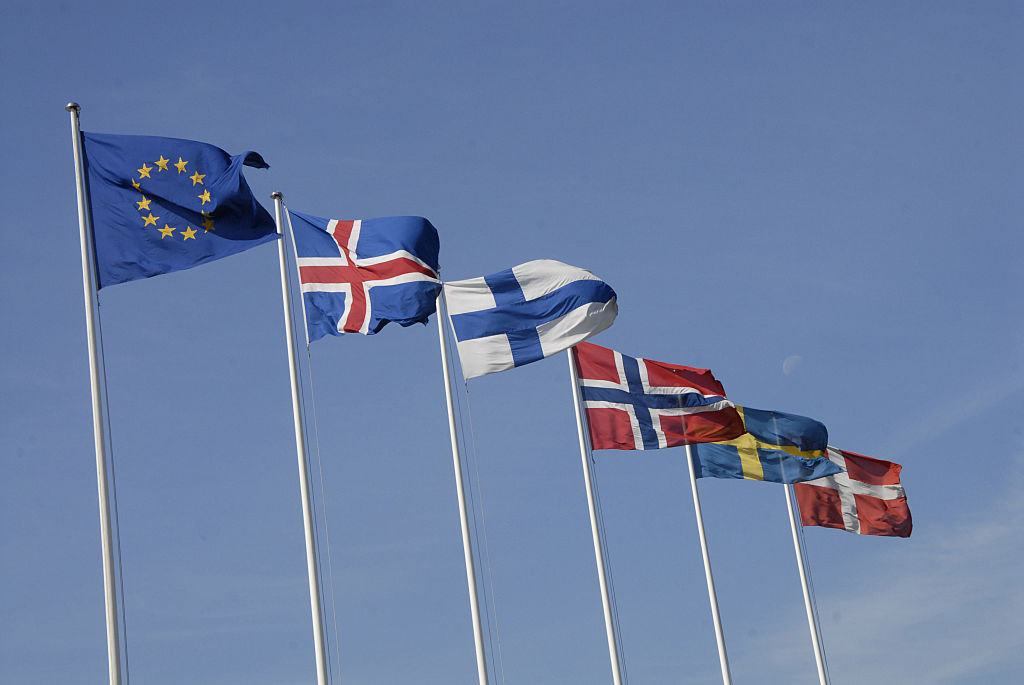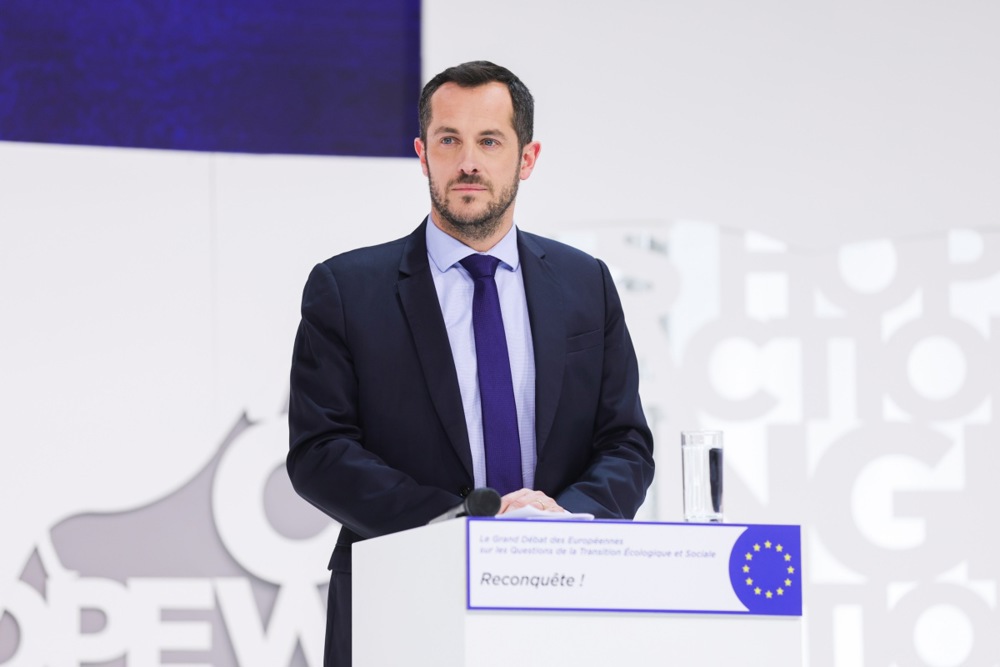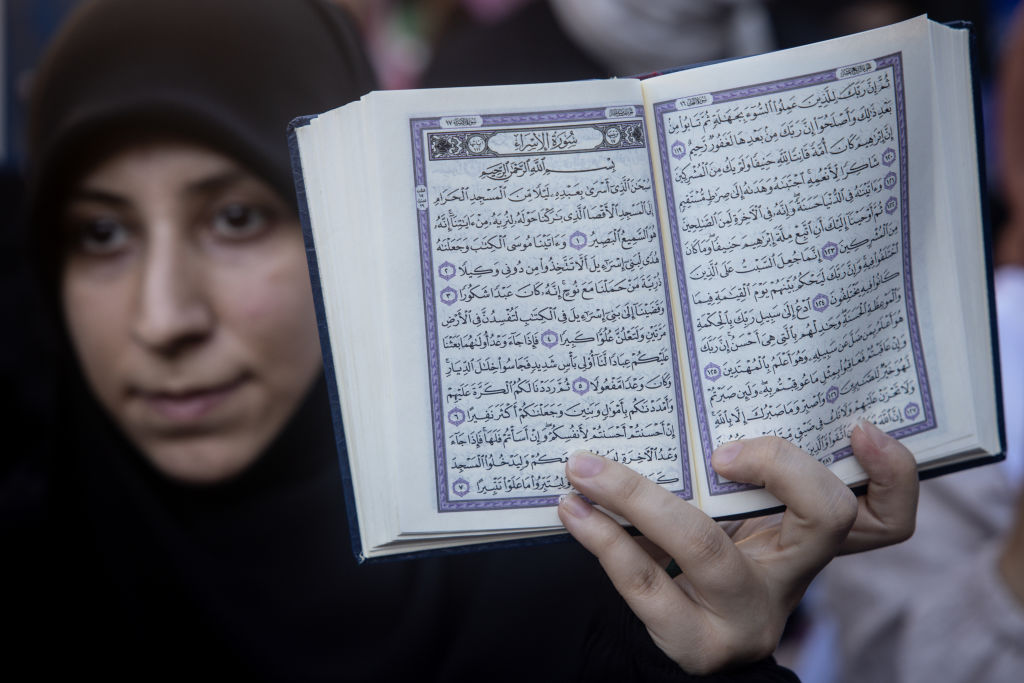Nordic members of the European Conservatives and Reformists (ECR) group in the European Parliament have promised a revival of more traditional Conservative politics within Brussels.
Five elected representatives from the Sweden Democrats (SD), the Denmark Democrats and the Finns Party have come together to create a new Nordic Freedom alliance within the ECR that aims to promote “small government”, support for Ukraine and the securing of Europe’s borders.
Speaking to Brussels Signal, veteran Sweden Democrats MEP Charlie Weimers described the impetus of forming the new group as being the similar interests of its constituents.
“We all come from parties that govern or aspire to govern our nations. We don’t aspire for eternal opposition,” he said from his new office in the EP.
Weimers has been at the centre of such a transition away from opposition politics. His Sweden Democrats party partially came in from the cold domestically in 2022, entering into a confidence and supply agreement with the country’s current centre-right government in exchange for increased influence over policy.
Similar scenes are now playing out in Brussels, with efforts at marginalising the ECR in the various European Union committees faltering after the EP elections in June.
Weimers was recently elected vice chair of the influential European Parliament Committee on Civil Liberties, Justice and Home Affairs (LIBE).
“We got all the committees that we aimed for,” Weimers said regarding he and his fellow Nordic MEPs. “For the first time in my party’s history, the SD now has a vice chair of a European Parliament Committee. That never happened before.”
Nordic Newcomers

The veteran MEP now wants greater sway over political developments in the European capital, promising to work alongside the centre-right politicians within the European People’s Party, as well as more populist-leaning politicians further to the Right.
Weimers shares this aim with his new alliance allies in the Finns Party and Denmark Democrats, both of which have returned to Brussels with new MEPs.
One of these new representatives is Finland’s Sebastian Tynkkynen.
While an EP newcomer, the Finn is no political greenhorn, having served as a ruling member of his country’s parliament, where his party holds nearly one-quarter of the body’s 200 seats, until being elected as an MEP.
“Walking the streets here is so much different compared to Finland,” he remarked when asked by Brussels Signal about the transition from Helsinki to Brussels.
“Here, I feel like I’m the individual private citizen again.
“In Finland, when I walk on the streets, a lot of people come to talk to me. Any trip from point A to B point, people come to talk and take selfies and so on.”
Another politician is Denmark’s Kristoffer Storm, whose previous experience was in more local politics, serving in various positions within the country’s Aalborg municipality.
Storm emphasised how much working with his Nordic colleagues had helped him settle into life in Brussels.
“It has been a great help for us,” he said, noting that his party was only two years old, with him being the first to hold the position of MEP.
Russia as a danger

Storm added that — even in these early days — the decision of the three delegations to form an alliance has made them “stronger”.
It is not the first time these parties have worked together in such a fashion. The first Nordic Freedom alliance was established back in 2012, not in the European Parliament, but in the Nordic Council — a group aimed at facilitating co-operation between Denmark, Finland, Iceland, Norway and Sweden, as well as various autonomous territories and regions.
The representatives now want to duplicate such a framework within Brussels, viewing themselves as having a distinct approach to politics that sets them apart from the various other parties.
“We want the same things,” Storm said.
Of their relatively numerous common aims, the three elements each one stressed were a push towards smaller government, a strengthening of Europe’s borders, as well as a greater effort to secure the EU and Ukraine against Russia.
This last point is one that all three appeared particularly keen to stress, emphasising that some of their colleagues further to the Right currently do not appear to be all that concerned about the dangers posed by Moscow.
“I was hoping that the support would be bigger here because in Finland, it’s it’s so huge,” Tynkkynen remarked, the MEP having spent his last days in the Finnish Parliament voting in favour of a bill aimed at securing the country’s border with Russia from Moscow-backed migrant surges.
“But here last week, we had the voting about the resolution on if we continue to support Ukraine, and it was just horrible to see how many MEPs from the Left Party were voting against or abstained. The same thing from the Patriots and the Sovereigntists. It was just crazy.”
Weimers pointed to Russia’s current hostilities towards Finland to illustrate the danger the Kremlin posed.
“For us, the issue of Russia is truly existential,” the Swede said.
“Finland is right now as we speak, the target of hybrid warfare by Russia utilising weaponised migrants.”
He went on to compare the theft of Finnish land by Russia after the Second World War to what is going on in Ukraine today, warning that the threat posed by the country would only increase if suitable preparations were not made.
“We have seen Russia practising nuclear attacks against mainland Sweden. Russia already before our NATO accession did this,” he said.
“They regard us in terms of an enemy. And, of course, we need to be on our watch.”
Sovereignty and Northern frugality
"She survived thanks to the votes from the Greens group. I fear she will have to deliver policy to make them happy!"
Swedish MEP Charlie @Weimers gives us his reaction to Ursula von der Leyen's reappointment as president of the European Commission. pic.twitter.com/Yhsh72KVhm
— Brussels Signal (@brusselssignal) July 18, 2024
All three are also in favour of seeing extra effort be put into securing Europe’s borders — an increasingly common desire amongst Europe’s Right — as well as a reduction in State interference in Europe’s market.
This latter trait sets them apart from many of their colleagues within the Sovereigntists and Patriots groups, as well as even some in ECR, with many politicians from Eastern Europe frequently arguing in favour of government intervention.
“Of course, some argue you have to you have to make some rules because otherwise it will be a mess,” Storm said.
“But I really truly believe in open markets that are as free as possible.”
Both Weimers and Tynkkynen independently echoed that sentiment, with all three men vouching for a sense of economic frugality they see as emblematic of Northern Europe.
“I want an EU that is big in the big questions, and small — very, very small — in the small questions,” Tynkkynen said, arguing that the Right should not be afraid of being positive on some levels of EU action — such as support for Ukraine — while also being critical of Brussels meddling in places it should not.
“We are all endorsing a frugal philosophy,” Weimers said.
“We want to cut red tape. Stop the tsunami of EU regulations. We saw over 10,000 legal acts or binding decisions during the last mandate and that needs to stop.”
A return of big-C-style Conservatism

Ultimately, all three men talked of wanting to promote a particularly Nordic brand of Conservatism in the EP, one which some see as having been absent since Brexit.
“I guess we’re picking up well quite literally, the torch that the Tory party left in the ECR,” Weimers said, arguing the alliance wanted to promote a “sovereigntist, inter-governmentalist perspective on the European Union”.
To this end, they all expressed a keenness in protecting what they regarded as democratic norms within the institution. While critical of the Patriots over their positions on Ukraine, all three expressed annoyance at their exclusion from EP committee positions
“Here, parties and their MEPs are represented by the proportions of how people voted, so that should be represented also when it comes to committee seats, committee chairmanships and all that,” Tynkkynen argued, adding that he and his ECR colleagues voted in favour of the Patriots receiving all of the seats they “deserve”.
Storm said that he “really wanted” to push his fellow Danish MEPs within the centrist groups on the cordon sanitaire, noting that his country was one of the few in the bloc where such a policy was widely seen as unacceptable.
“I know the Danish people will say that you have to listen to the rest of the parliament,” he claimed, arguing that such an exclusion should only ever be used against the most radical individuals, such as bonafide Nazis and Communists.
Weimers painted the alliance’s fight against the cordon sanitaire as representing an opportunity now that the ECR largely found itself on the politically correct side of the exclusion zone.
“We can act as a bridge between the establishment centre-right and the Conservative forces that are on the wrong side of the cordon sanitaire,” he said, adding that was “among the most important roles we can play” in the EP.
“For instance, in the LIBE committee, I do think we can find real centre-right to right-wing majorities, and that we, then, who can talk to both sides, can play a constructive role as an intermediary to enable good conservative policy paths,” he said.
ECR group MEP Charlie Weimers has called on European Parliament President Roberta Metsola to punish a left-wing MEP who implied he was a “racist”. https://t.co/fHxxGQe3X7
— Brussels Signal (@brusselssignal) July 26, 2024





